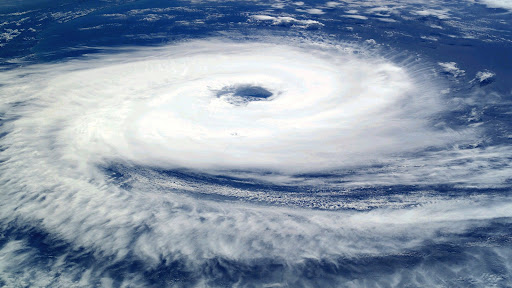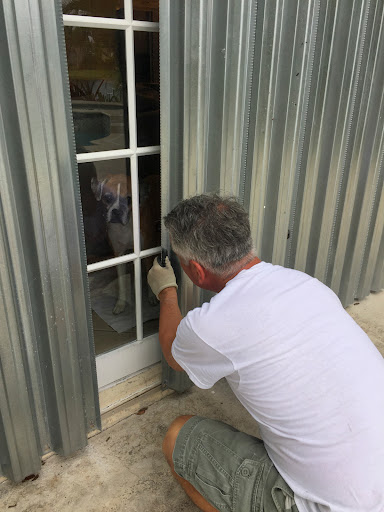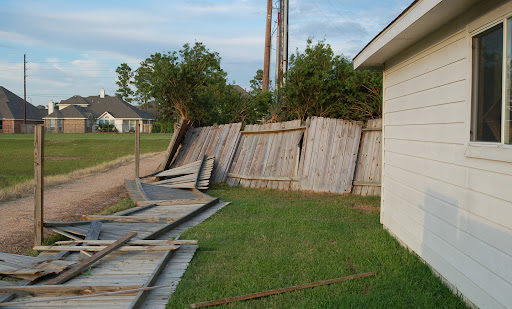Tips to Prepare for a Hurricane

Hurricane season is upon us. Every year, Louisianan’s brace for high winds, heavy rains, and the other effects of hurricanes and tropical storms on our coast. This year, the National Oceanic and Atmospheric Administration (NOAA) predicts another “above-normal Atlantic hurricane season,” with a 65% chance of above-average hurricane intensity and frequency. In fact, some forecasters expect that this season could be as intense as 2005 when Katrina hit.
When is Hurricane Season in Louisiana?
The National Hurricane Center has designated the six months between June 1 to November 30 as “hurricane season” because 97% of all Atlantic hurricanes and tropical storms happen within that time frame each year.
The best time to prepare for a hurricane is before it’s become one, so get everything you need together now to stay safe this summer. The Louisiana hurricane claim lawyers at Gordon McKernan Injury Attorneys have a list of helpful tips and other information to follow during hurricane season, as compiled by the Centers for Disease Control and Prevention (CDC), outlined below.
Hurricane Preparedness Supplies: What Do You Need?
Of course, every family has different needs: a young family with five children will need different things than a retired couple. However, pretty much everyone can benefit from having the following easy to access in the event of a hurricane:
- Food and water (non-perishable) for everyone for at least 7 days per person
- Prescriptions and other medication, refilled by the pharmacy
- Cash, since ATMs and other machines could stop working
- Flashlights and batteries
- A battery-powered radio, to keep track of events
- A first-aid kit, including bandages, antibiotics, and face masks
- Essential items for elderly, infant, or infirm family members
- All of your important papers, such as your driver’s license, passport, birth certificate, social security card, and others, in a waterproof container
- Full tanks of gas in all of your vehicles
- Home disinfectants like alcohol wipes, disinfectant spray, and others
How to Prepare Your Home Against a Hurricane in Louisiana

- Inspect your home and its surroundings for loose branches, low-hanging limbs, loose roof tiles or siding, cracked windows, or exterior holes. Remove, repair, or replace damaged items or potential debris.
- Secure all remaining loose items around your house, including furniture, vehicles, and others.
- Repair damaged pipes, seal windows and doors, and ensure that your house is protected from leaks caused by wind and rain.
- Procure sandbags and other items needed to protect your home against flooding and other weather damage.
When You Have to Evacuate
Even though leaving your home in the path of a hurricane is never easy, it can be necessary to save your and your family’s lives. Planning your evacuation route can help make this already-stressful time as straightforward as possible. For a comprehensive checklist on what you should do before, during, and after your evacuation, check Ready.gov. To find your ideal evacuation routes and zones in Louisiana, check out the LaDOTD Evacuation Planning site for a full list.
Don’t Forget Your Furry Family Members
Your pets are just as much a member of your family as anyone else, so it’s important to have a plan for them as well. This is why we’ve put together a brief hurricane checklist for pets so you can help them stay calm and safe in the event of severe weather. In general, you should have similar supplies for them as you do for the rest of your family:
- Food and water for at least 7 days, per pet
- Refill all their medicines before the storm
- Have your pet microchipped so they can be returned to you if they get lost, and make sure your address is up-to-date
- Plan for the safety of your pet if you have to evacuate: remember, some hurricane shelters don’t allow animals.
What to Do on Your Return

After the storm, there’s no telling what you might find at home. You could be one of the lucky ones with only minor or superficial damage, or you could require a complete rebuild. The first step (after ensuring everyone has gotten home safely) is to evaluate your home for possible damage from wind, water, or debris, and file a claim with your insurance company as necessary. Knowing the extent of the damage is extremely important when planning on how you will rebuild after weathering a hurricane.
The lawyers at Gordon McKernan Injury Attorneys have called Louisiana their home for decades, and we know exactly what you’re going through and how to take care of our neighbors after a big storm. Many of us have experienced the same hardships ourselves. So if you’re trying to rebuild and run into reluctant insurance companies, dishonest contractors, or other problems, you can trust us to have your back as we work to defend your interests.
Give us a call at 888.501.7888 for a free legal consultation about your issue. We’ll listen to your story, and a dedicated lawyer will give you considered advice as to your next steps. If we take on your case, you have a guaranteed advocate—if we don’t win your case, you won’t owe us a dime, that’s the G Guarantee.

